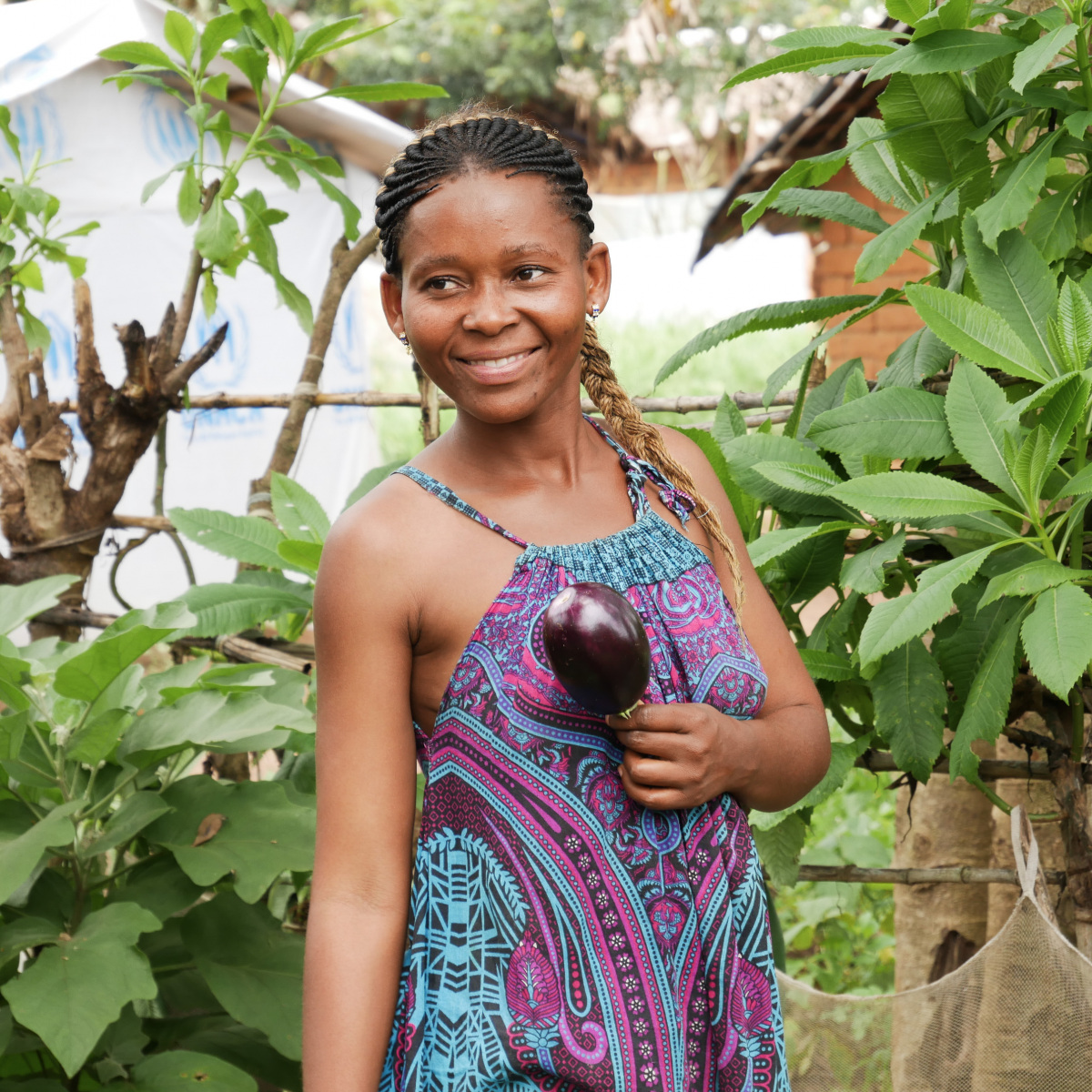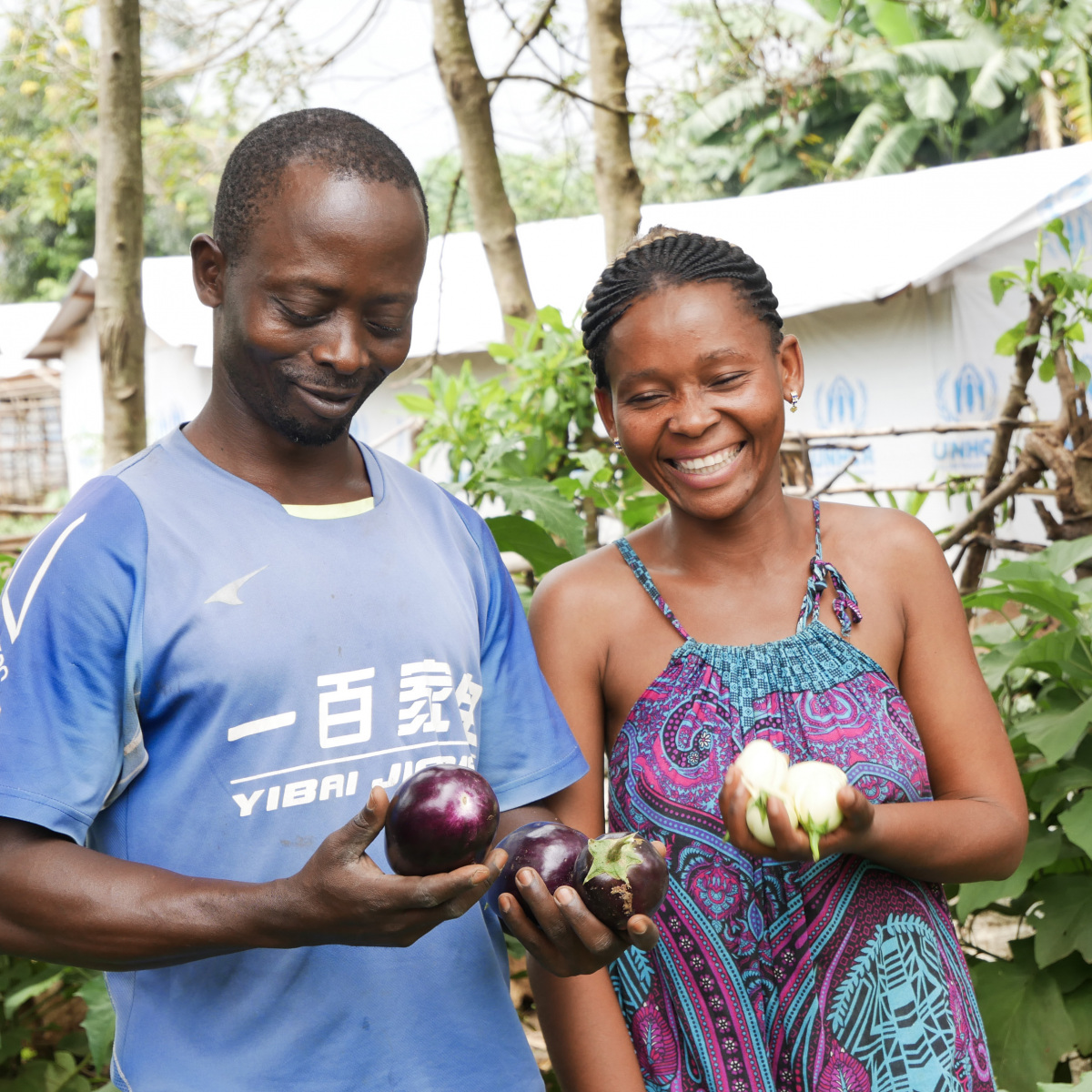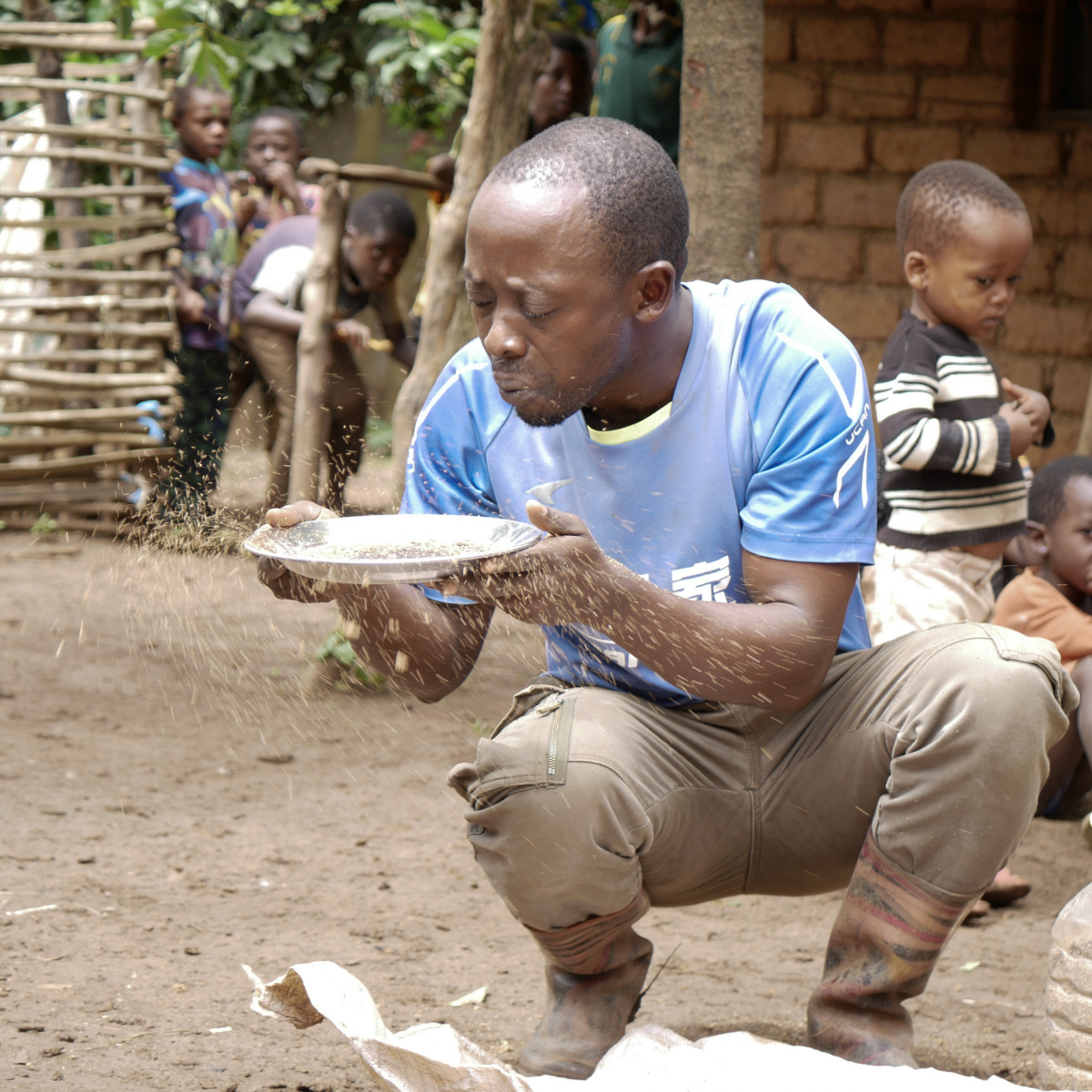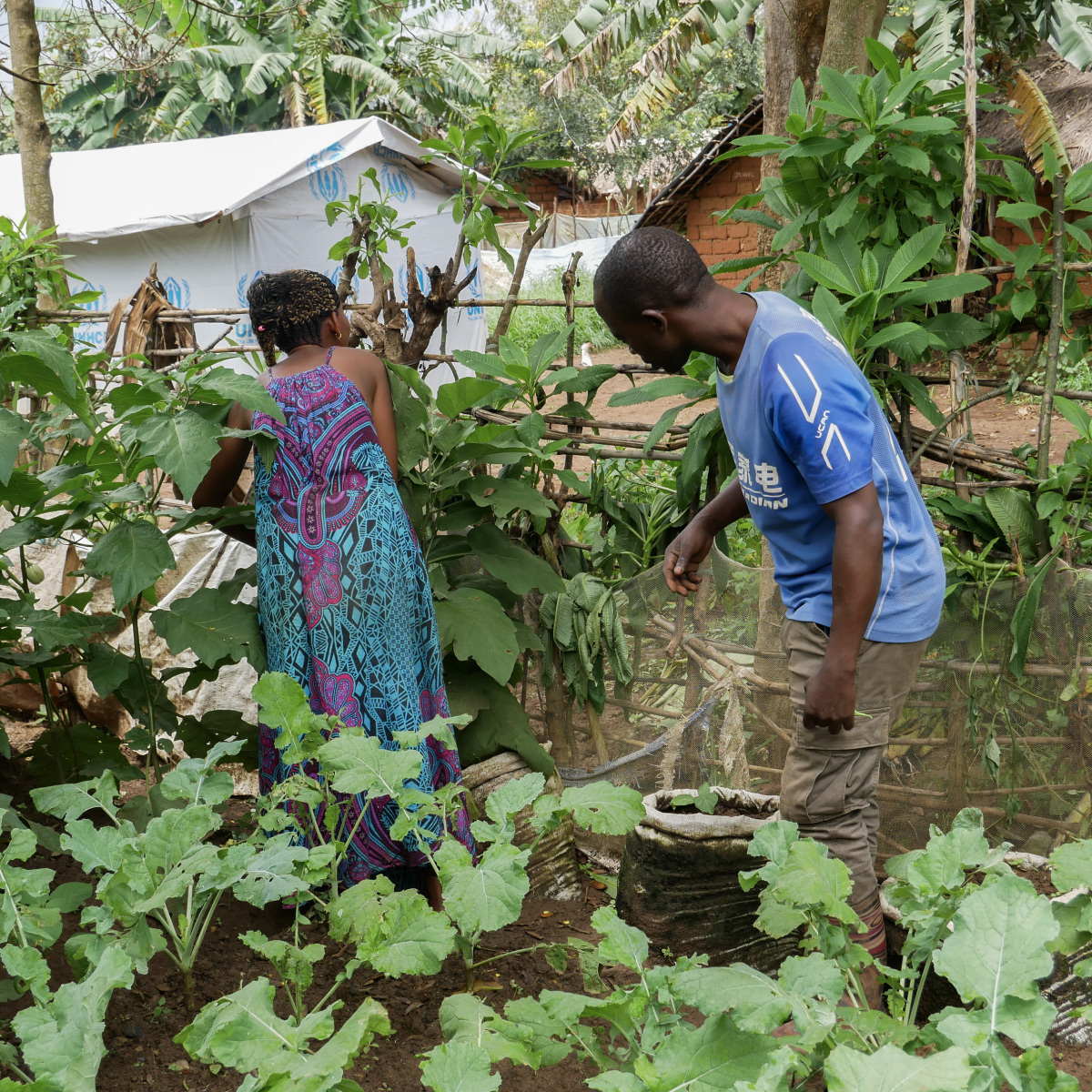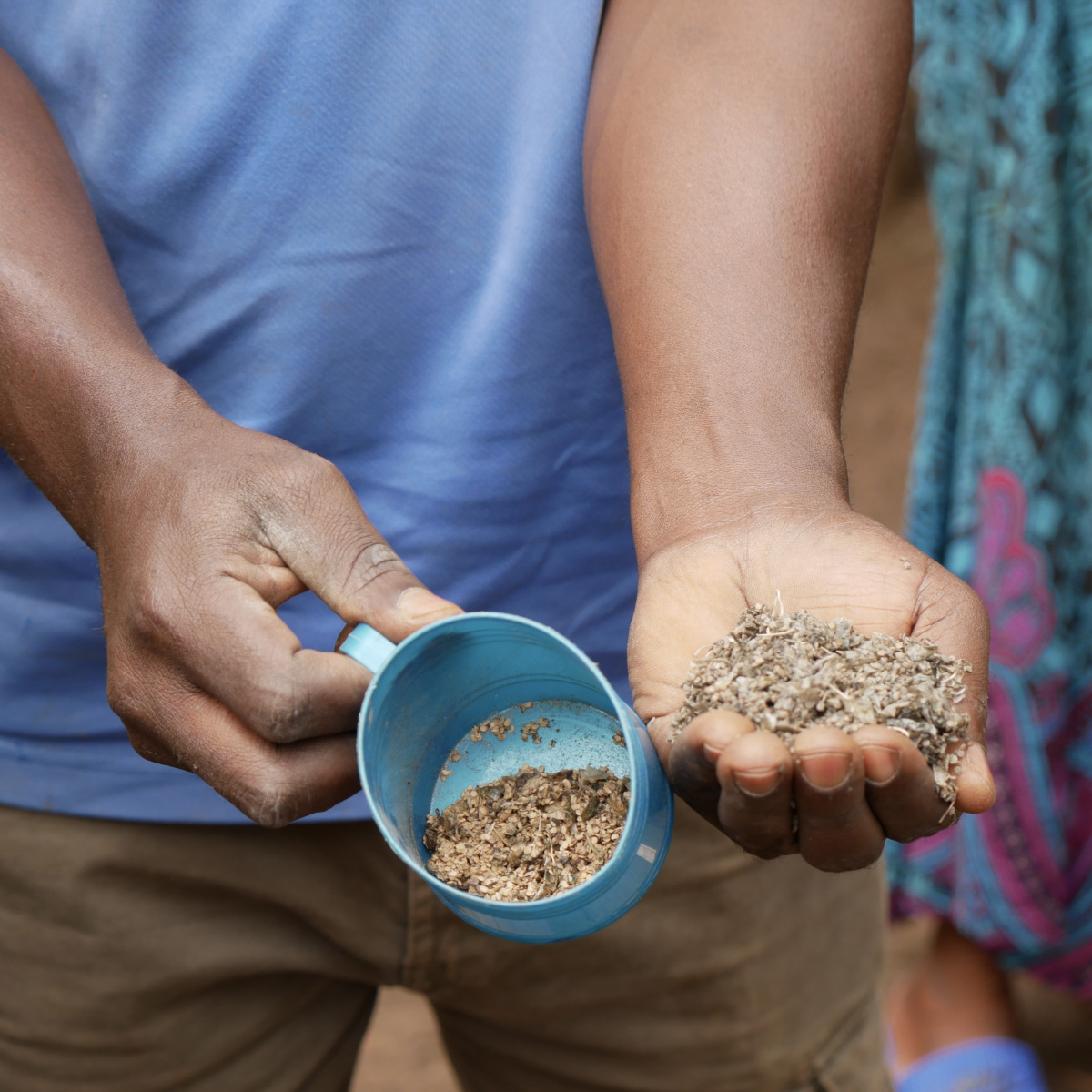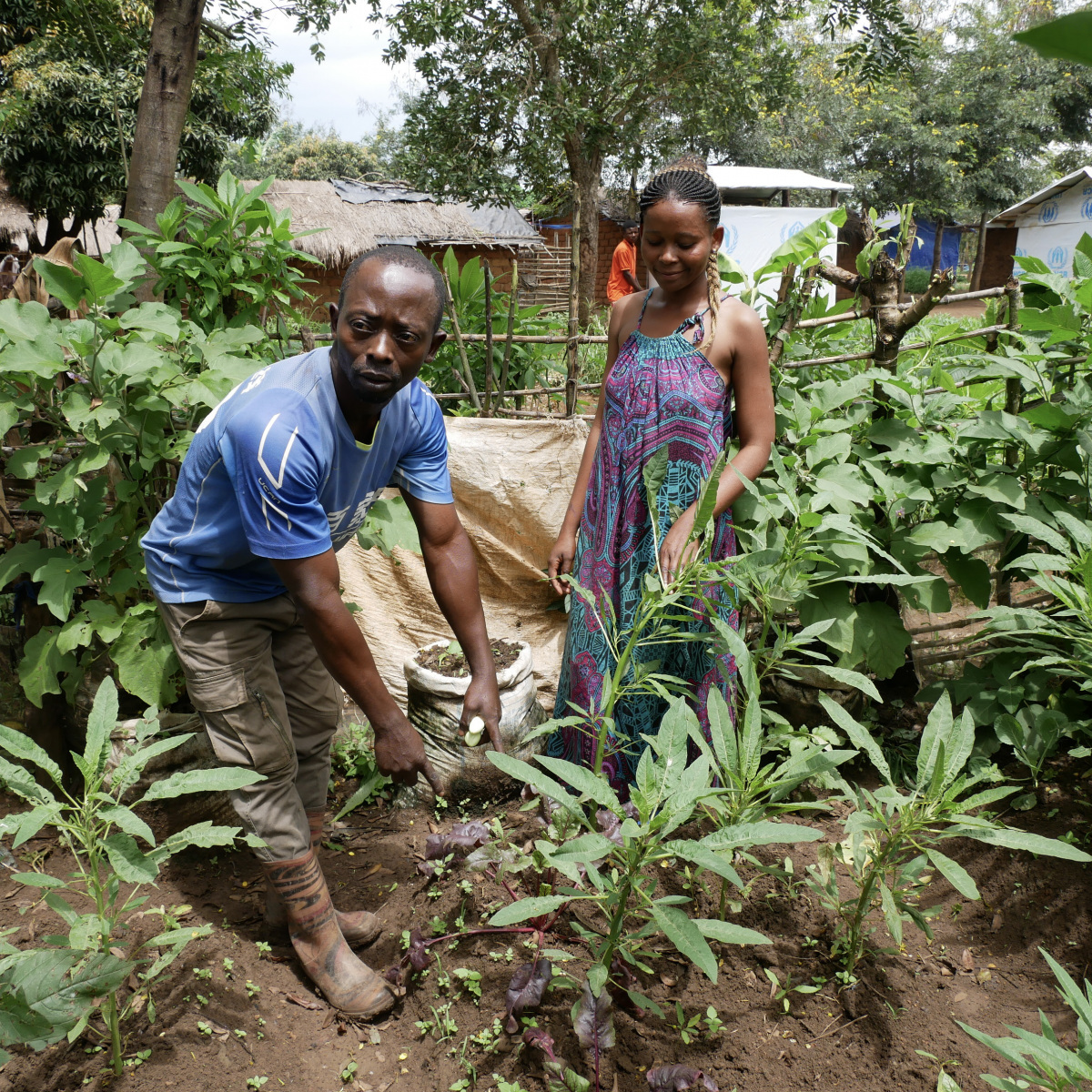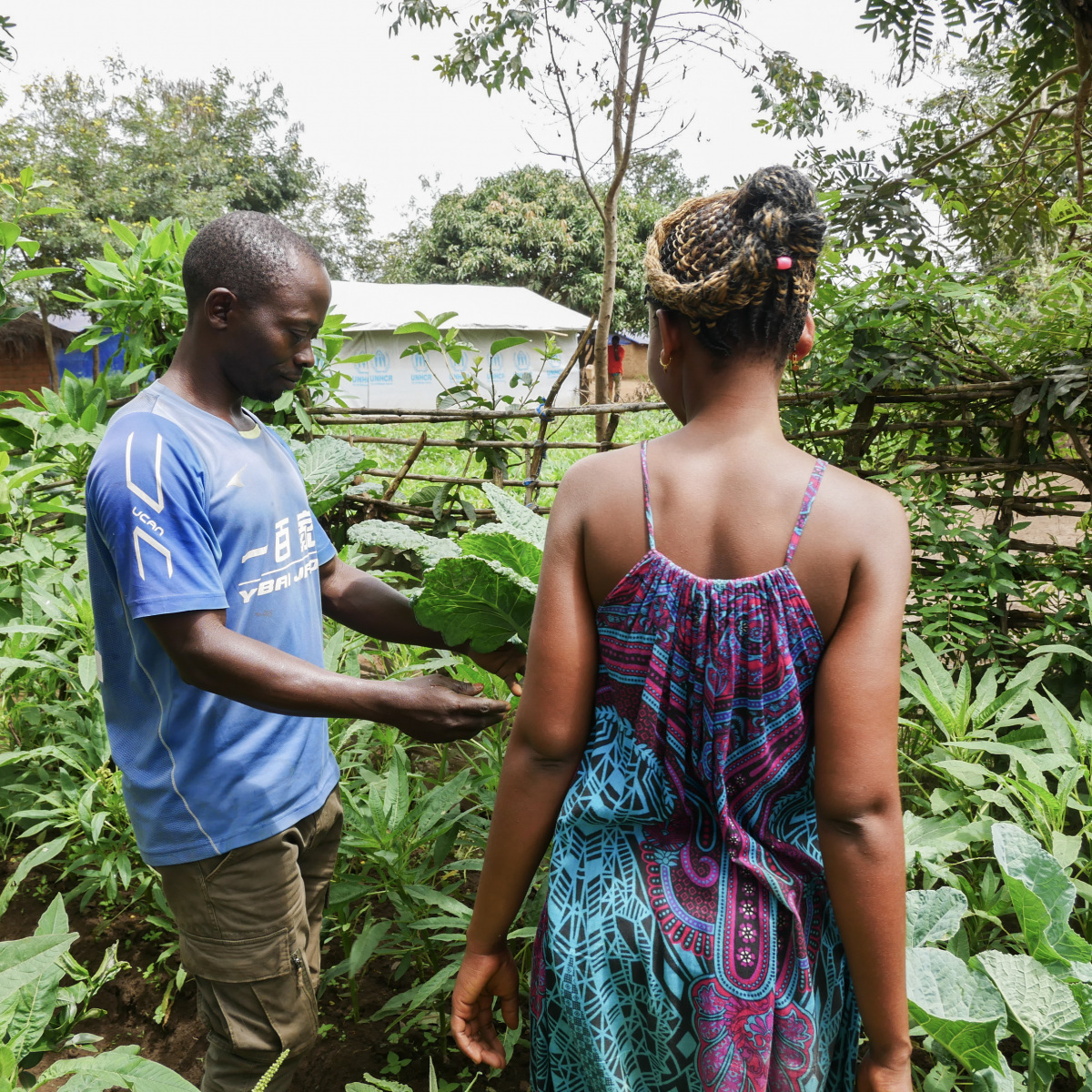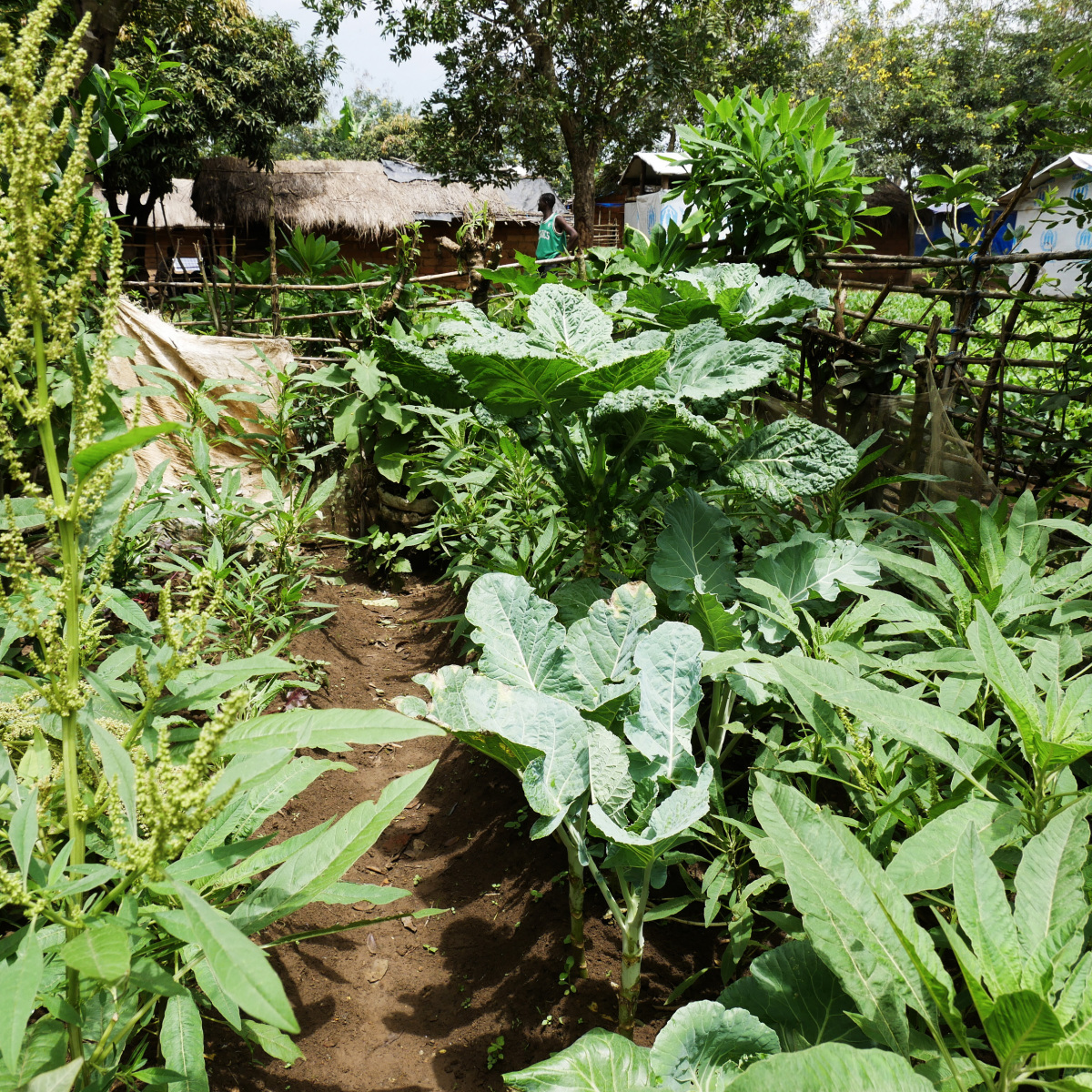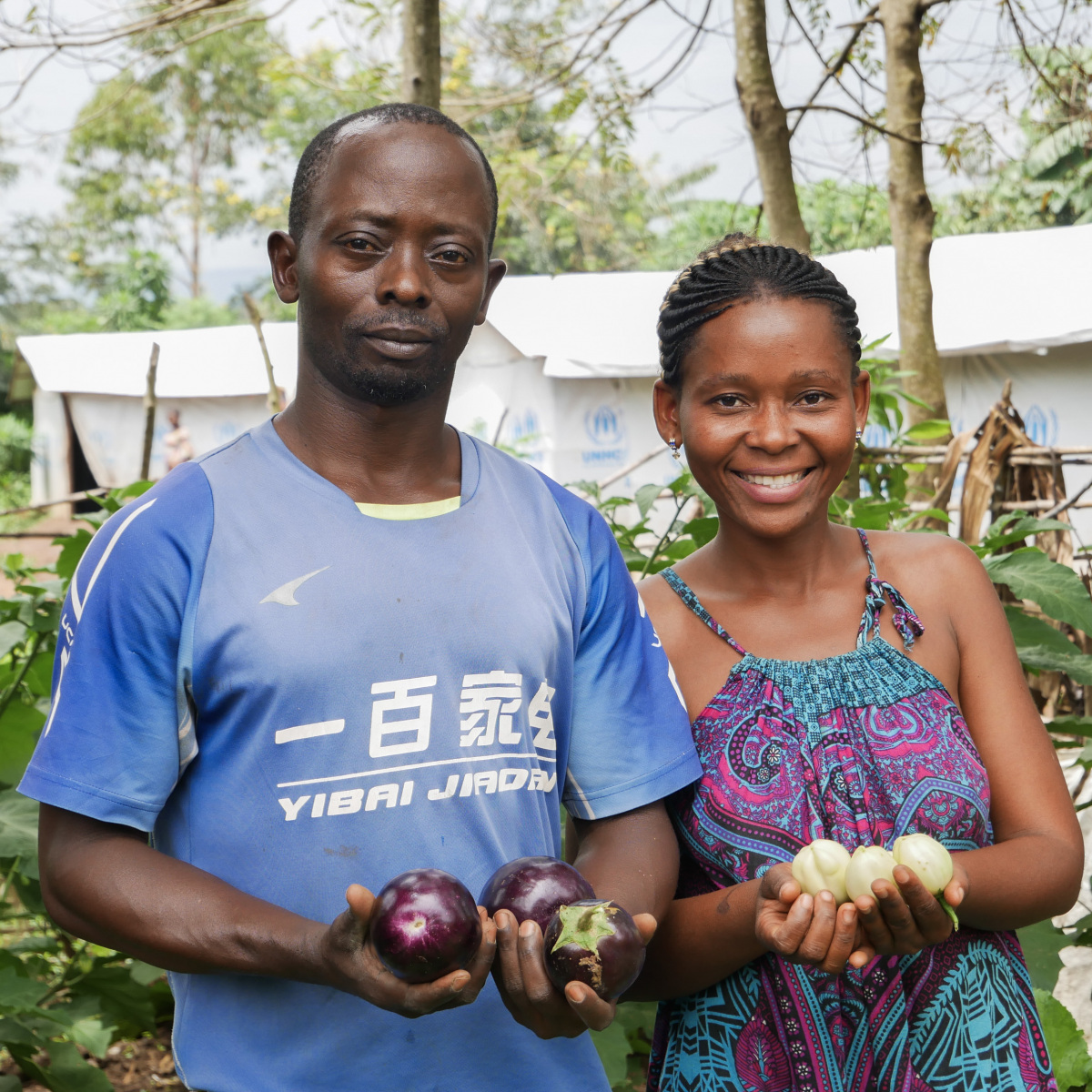Ebocwa and Nadia in their home garden
In 2018, due to ongoing conflict in the Democratic Republic of Congo, Ebocwa and his wife Nadia had to leave their home and flee to Tanzania where they would have to restart their lives in the Nyarugusu Refugee Camp. Life was immediately challenging and Ebocwa was soon forced to make a difficult decision in order to support his wife and four children. Due to the limited ways of making some kind of income, Ebocwa decided to go into the nearby forest and start chopping trees to sell for firewood.
Ebocwa continued this practice but hoped that he could find a better way to care for his family. He explained, “We were living in a tent and I began wondering how I could build a better house for us. Finally, in 2021 CWS came into our village and invited us to be part of the agriculture program. CWS came at the right time because my life was very hard.”
Soon Ebocwa and Nadia joined the program and began attending trainings on sustainable vegetable farming, good nutritional practices and gender equality. While all of these trainings had a major impact on their life, there was one that stood out to Ebocwa. “Among the many things that have touched my heart is the training on environmental protection because I used to go into the forest and cut down trees which destroyed the environment. Because of that, I decided to start planting trees all around,” he shared.
Ebocwa was so moved by this new knowledge that when he remembered all the deforestation he had seen back in the Democratic Republic of Congo, he wished CWS could exist there too to spread this same knowledge and reduce harm to the environment.
Beyond learning to care for Mother Earth, Ebocwa improved his relationship with another mother: the mother of his children and beloved wife, Nadia. “Because of the gender equality training we received, I am doing this work with my wife and my children.” He added that anytime he needs to make a decision, now he makes it together with his wife. The couple has been so successful that they are seen as role models by the other couples in the program.
Since joining, Ebocwa and his family have been able to move into a better home that is surrounded by a flourishing garden that feeds them every day. Their harvest is so abundant that they have enough to share with their neighbors and sell to other families. Ebocwa also shared that before the program, his children were malnourished and suffered from various illnesses due to the lack of diversified nutrition. Now his children are healthy and strong and everything he needs to ensure his family is well cared for can be found in his backyard.
From chopping down trees to planting them, Ebocwa has grown in many ways. With each seed he and Nadia plant together, they are growing hope and caring for the place we all call home.
CWS is grateful to our partners, the Primate’s World Relief and Development Fund and Canadian Foodgrains Bank, for supporting this work. To help us expand programs like this one and support families all around the world to grow their own hope you can donate here.

